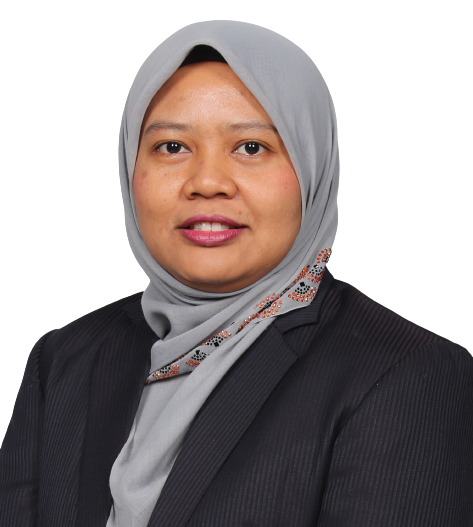PROGRAMME OVERVIEW
Day 1 - 27th March 2025
Registration Desk
National Anthem of Japan
National Anthem of India
Welcome Speech by Moderator
Welcome Speech by Special Guest of Honor
Photographic Session
Refreshment Break
Technical Session I
Lunch break
Technical Session II
Refreshment Break
Valedictory
Vote of Thanks
Day 2 - 28th March 2025
Welcome Speech by Moderator
Welcome Speech by
Speech by Exclusive Event Speaker
Technical Session I A
Technical Session I B
Lunch Break
Technical Session II A
Technical Session II B
Technical Session III A
Technical Session III B
Valedictory
Vote of thanks
Session Speaker
Paper Title : Transforming Learning Design at Arden University: Leveraging AI for Creativity and Efficiency

Mr. Andy Ramsden
Arden University
United Kingdom.
Abstract:
Arden University is undergoing a strategic transformation in how learning materials are designed and developed for its online programmes. This shift involves implementing a standardised learning model while redefining the roles and responsibilities of both academics and learning designers. A key part of this transformation is exploring AI tools to inspire greater creativity and efficiency in the design and development process. This presentation will provide a comprehensive overview of the rationale behind these changes, share emerging lessons and insights from applying various AI tools, and explore the broader implications for staff development and digital capability building within higher education. Attendees will gain practical insights into how AI can support content creation and collaboration and the institutional shifts required to enable sustainable digital transformation.
Scientific Session
Paper Title : Physics Learning Design Based on Transformative Inquiry-Physics Edutainment on Static Electricity Material for Junior High School Students

Anderias Henukh
Abstract :
This research aims to develop a physics learning design based on inquiry transformation with a physics-edutainment approach on static electricity material for junior high school students in Papua. The method used in this research is Research and Development (R&D) with the ADDIE (Analysis, Design, Development, Implementation, Evaluation) development model. The material validation results obtained a percentage of 93.63%, media validation 85.41%, and language validation 97.56%. The results of the student response test showed a percentage of 86.6%, while the teacher response test obtained a percentage of 95.14%. Based on these results, the inquiry-transformation-based physics learning design with a physics-edutainment approach to static electricity material at Ibnu Sina IT Middle School, Merauke, was declared very suitable for application in science learning. The t test results showed a significant increase in student understanding, with an average pretest score of 65.4 and a posttest average of 85.3. The paired t test produced a value of t = 7.61 with p < 0.05, which indicated that the difference between the pretest and posttest was significant. In addition, an independent t test was carried out to compare the posttest results between the experimental group and the control group. The experimental group (N = 30) obtained a posttest average of 85.3, while the control group (N = 30) obtained a posttest average of 75.8. The independent t test shows a significant difference between the two groups, with a value of t = 4.29 and p < 0.05, which further supports the effectiveness of the physics-edutainment approach in increasing students' understanding of static electricity material. Based on the research results, a physics learning design based on inquiry transformation with a physics-edutainment approach is recommended as an innovative alternative in learning static electricity material at junior high school level.
Paper Title : E-Learning: The Effectiveness of Bebestory’s Interactive Storybooks in Influencing Reading Interest

Irvan Syahrizal
Abstract :
Surveillance Along with the development of technology, Bebestory interactive picture storybooks have been introduced as an innovation by combining visual elements and activities that can engage children more deeply during the reading process and not only offer interesting stories but also invite children to interact with the content through sound and moving images with simple animation. This study examines the impact of using Bebestory interactive picture storybooks in increasing the reading interest of primary school students in Remote and Isolated Villages. The research approach used is quantitative with a pre-experimental research design with the type of one-group pretest-posttest design. This research model consists of only one group. This study used 82 student respondents in phases A to C at Melidi State Elementary School which is a remote and isolated village. The data analysis used was descriptive statistics and inferential statistics. Hypothesis testing using paired sample t test and N-Gain test. The results showed a significant increase in students' interest in reading. Bebestory interactive picture storybooks are more effective as evidenced by high post-test scores and N-Gain scores. This study concludes that Bebestory interactive picture storybooks significantly increase students' interest in reading.
Keywords: E-Learning, Interactive Storybooks, Reading, Interest
Paper Title : The Role of Computational Thinking in Physics Education

Asep Irvan Irvani
Abstract :
This study investigates the integration of computational thinking (CT) in physics education over the past two decades (2003–2023) through a systematic literature review (SLR) guided by the PRISMA methodology. A total of 188 peer-reviewed articles from Scopus and PubMed databases were analyzed, focusing on publication trends, thematic developments, and geographic contributions. Using bibliometric tools such as VOSviewer and R, the analysis identified three major research clusters: (1) CT-based instructional methods and their impact on student outcomes, (2) the role of computational tools and simulations in enhancing conceptual understanding, and (3) frameworks for assessing CT competencies in physics curricula. Results show a marked increase in CT-related publications after 2015, driven by global initiatives promoting STEM education, with significant contributions from North America, Europe, and an emerging presence from Asia. The findings underscore the transformative potential of CT in fostering interdisciplinary problem-solving skills and preparing students for challenges in technology-driven fields. This review highlights critical gaps in research, including a lack of standardized assessment methods and limited studies in diverse educational contexts, offering actionable insights for educators, researchers, and policymakers to advance CT integration in physics education.
Keywords: bibliometric analysis, computational thinking, physics education, SLR
Paper Title : Digital Pedagogy in Teachers Perspective

Pitriyani
Abstract :
Teachers&39; perspectives on education policy are often overlooked. Their minimal involvement in the policy formulation process erodes the role of teachers as critical educational subjects. This article explores teachers&39; views, experiences, and challenges in implementing digital pedagogy. Using Paulo Freire's idea of critical education that emphasizes critical awareness, we are interested in uncovering how the integration of digital technology in the education process has placed teachers in a difficult and constrained position between the demands of mastering digital competencies and the obstacles they face in schools. This article uses qualitative research based on a literature review that analyzes 12 scientific articles and research reports related to digital pedagogy from 2020 to 2024. The research findings show that the COVID-19 pandemic has accelerated the need for digitalization in education (digital pedagogy). Teachers who are required to master digital technology briefly experience obstacles and limitations, such as social conditions, availability of infrastructure, support from school institutions, and lack of teacher training. As a result, technology only plays a role as an administrative tool that encourages uniformity, instead of supporting the innovation and critical engagement needed in education.
Keywords: Digital Education, Critical Pedagogy, Educator Involvement
Paper Title :The Role of Digital Technology in Implementing the Independent Curriculum in the Era of Society 5.0 in Sociology Education

Windri Wisti
Abstract :
This study aims to conduct an in-depth analysis of the integration of technology within the Merdeka Curriculum, with a specific focus on sociology education in the context of Society 5.0. This study is crucial due to the limited existing research, particularly in the field of sociology, on how technology can be effectively integrated into the Merdeka Curriculum and the strategies required for its incorporation into sociology education in the digital age. The research employs a qualitative approach through a literature review, synthesizing findings from various related sources and drawing conclusions based on the literature. The study highlights several challenges, including limited access to technology-based learning resources, inadequate facilities, and low digital literacy among educators. The findings reveal several technology-based tools, including interactive multimedia via Android applications, social media, audiovisual media, Google Sites, and podcasts, which can be effectively utilized in sociology education in the digital era. These tools offer an innovative learning experience for students by facilitating the integration of technology into the Merdeka Curriculum. This research emphasizes the critical role of educators in understanding and adopting technology as key facilitators of the learning process. It also highlights the need for educators to enhance their digital competencies in order to meet the challenges of the digital age, thereby ensuring the successful implementation of the Merdeka Curriculum in alignment with Society 5.0. Finally, this research aims to serve as a valuable resource for educators, inspiring creativity in developing and utilizing sociology learning media that actively engage students, thereby creating learning experiences that align with the demands of the Merdeka Curriculum in the era of Society 5.0.
Paper Title : Empowering Entrepreneurial Mindsets: Exploring Vocational Science Teachers' Experiences in Student Skill Enhancement

Syinta Khefrianti
Abstract :
Entrepreneurial mindset can be cultivated through the enhancement of both creative thinking skills and entrepreneurial thinking. These skills play a crucial role in preparing students to become innovative and adaptive individuals in the workforce. This study aims to explore how vocational science teachers in West Java implement learning approaches that foster the entrepreneurial mindset in students. A survey was conducted with 30 vocational science teachers from various schools across West Java, selected using random sampling to gather data on their teaching methods. Data analysis was performed using percentage-based calculations to assess the extent to which the identified teaching methods were implemented across the sample. The findings reveal that 53.33% of the teachers have already incorporated creative thinking skills into their teaching methods, while 63.33% of them have introduced entrepreneurial thinking-based approaches in their classrooms. In conclusion, although a significant number of teachers have begun to adopt practices that encourage both creative and entrepreneurial thinking, there is still room for improvement to ensure that all students benefit from these essential skills. The study suggests that further training and support for teachers could enhance the development of entrepreneurial mindset in vocational education, ultimately contributing to student success in the modern job market.
Keywords: Entrepreneurial mindset, creative thinking skill, entrepreneurial thinking, science in vocational school
Paper Title : Exploring the Effectiveness of Integrating Working Memory Training Strategies with English Language Learning

Wen-chi Tseng
Abstract :
This study investigates the integration of working memory training strategies with English grammar learning by leveraging the visual programming language platform Scratch to design interactive educational games. The games are developed to combine cognitive skill enhancement with language acquisition. A total of 100 to 150 middle school students will participate, representing a critical age group for cognitive and linguistic development. Participants will be randomly assigned to one of three groups: two experimental groups receiving either complex span training or updating training, and a control group following traditional instructional methods that lack specific cognitive training components. The intervention spans 6 to 8 weeks, consisting of weekly 30-minute sessions delivered via iPads or computers. Pre- and post-intervention assessments will evaluate improvements in working memory capacity and English grammar performance, focusing on specific grammar structures tailored to the curriculum. By exploring the effects of integrating cognitive training into language learning, this research aims to provide evidence-based recommendations for enhancing working memory training's role in improving learning outcomes and promoting more effective language education practices.
Paper Title : Readiness on eLearning among Accountancy Students in Accounting Information System: A Flexible Learning in the New Normal

Catherine D Sotto
Abstract :
With the outbreak of coronavirus (COVID-19) throughout the world, it brought impacts and challenges on education response to ensure learning continuity. But there is a scant research literature on flexible pedagogical strategies in the new normal. Thus, this study investigated the readiness in eLearning among Accountancy Students in Accounting Information System during Covid-19 pandemic. This study employed a quantitative-descriptive research. It used a purposive sampling technique among chosen 54 Filipino accounting students as target respondents. It used SPSS for statistical analysis of the data. It used SPSS for statistical analysis of the data. This study used self-made questionnaires: Readiness on eLearning among Accountancy Students in Accounting Information System (ReLAIS), a 20-item Likert Scale. Findings of the study revealed that accountancy students were highly confident in applying and observing online netiquettes but less confident in having a strong internet connectivity during accounting classes and engaging themselves in online discussion. This study suggested the use of asynchronous learning modality to benefit students having problems on internet connectivity and to engage students in virtual classroom discussion.
Keywords: Online Learning Materials, COVID-19, Accountancy Students, Accounting Information System, Internet Connectivity
Paper Title : Optimizing the Integration of Mobile Applications in the Training of Future Physical Education Teachers.

Mr. 1 Zokir Akramov O‘tkirvich
Abstract :
This research aims to improve the teaching methods of future physical education teachers by integrating mobile applications into the educational process. The study explores how mobile technologies can enhance teaching effectiveness by promoting more interactive and engaging learning experiences. Mobile applications provide teachers with opportunities to expand their knowledge, access teaching resources, and stay updated on the latest pedagogical trends, all of which contribute to more dynamic lesson delivery. These tools also facilitate better communication between teachers and students, fostering a more collaborative and supportive learning environment. By leveraging mobile technologies, teachers can personalize learning experiences, offer real-time feedback, and create interactive lessons that keep students motivated and involved. Moreover, mobile applications help in tracking student progress, enabling teachers to tailor their approach based on individual needs. Through successful case studies and innovative teaching strategies, the research highlights how these applications can revolutionize physical education instruction, making it more efficient and student-centered. Ultimately, the integration of mobile applications not only improves teaching practices but also enhances student engagement, making the learning process more enjoyable and effective.
Paper Title : SELF-EFFICACY IN SPEAKING OF ESL STUDENTS IN HYFLEX CLASSROOM

Dr Rizal O Dapat
Abstract :
English proficiency has become indispensable for success in todays globalized world, be it in pursuing further education, a career, or just getting by in life. Among English as a Second Language or ESL learners, this has become more challenging especially in a HyFlex learning contexts, where technology and other forms of communication are heavily integrated. Thus, this study aims to assess the self-efficacy of ESL students in speaking English in a Hyflex classroom setting, considering factors like communication mode, technological competence, feedback reception, participation level, confidence, and self-regulation. The research used a mixed-method approach, using a structured survey and semi-structured interviews with English teachers. The findings reveal a multifaceted nature of speaking proficiency among ESL students, with factors like communication mode, technological competence, feedback reception, participation level, confidence, and self-regulation playing significant roles. The study also reveals challenges faced by ESL students, such as linguistic barriers, insufficient confidence, technical difficulties, and limited interaction opportunities. In response, teachers employ techniques like oral exercises and interactive tasks to enhance students' confidence and self-assurance. The study highlights the need for personalized support, tailored methods to address individual difficulties, and teachers; strategies to enhance students; confidence in speaking.
Paper Title : Advancing Lexical Enrichment and Linguistic Competence Through Technological Innovations

Prof. Fawzi Alghazali
Abstract :
The integration of technological innovations presents a multifaceted array of authentic, contextually enriched opportunities for both deliberate and incidental vocabulary acquisition. Among these innovations, Online Mobile Dictionaries (OMDs) emerge as indispensable tools, facilitating not only the profound comprehension and pragmatic application of lexical items but also offering insights into their etymological roots and nuanced contextual usages. This study endeavors to critically examine the influence of OMDs on vocabulary development through a methodologically rigorous approach. To achieve this objective, experimental and control groups were meticulously structured, and participants were subjected to comprehensive pre- and post- intervention assessments. Additionally, a systematically developed questionnaire was employed to collect quantitative data, enabling an in-depth analysis of students; perceptions regarding the integration of OMDs into language instruction. The findings unequivocally demonstrate that incorporating OMDs into language pedagogy yields substantial advantages, including enhanced competence in analyzing derivational and inflectional aspects of vocabulary and significant advancements in phonological awareness. Furthermore, the study highlights the pedagogical efficacy of combining semantic mapping strategies with the use of OMDs, positing this integrated approach as a robust mechanism for reinforcing lexical knowledge. This synergistic methodology proves particularly effective within Blended Learning environments, fostering learner autonomy and cultivating a more nuanced and sophisticated understanding of linguistic structures. As posited by Holec (1981), the cultivation of learner autonomy empowers language learners to strategically plan, monitor, and evaluate their progress, while adapting learning strategies and styles to align with their individual abilities and interests. This paper thus provides a comprehensive theoretical framework for independent learning and delivers empirical evidence on the practical application of autonomous learning principles in routine language acquisition practices.
Keywords: collocation, lexical entries, online mobile dictionaries, semantic mapping, vocabulary acquisition
Paper Title : CHANGING ASPECTS IN E-CLASSROOM AND THE TEACHERS’ EXPERIENCES: A BOOST IN MANAGEMENT PROGRAM

Helmer Montejo
Abstract :
E-classroom is the new trend while other schools are still adopting the traditional way of promoting learning among learners. Designed to facilitate students’ learning, simulated circumstances in most activities in e- classrooms will definitely help the learners to apply them in real life. In public elementary schools, each e- classroom is assigned with one (1) ICT coordinator. Its regulation is dependent on each school and the principal plays a vital role in implementing them. The researcher observed that most of the teachers preferred to use printed modules rather than having online instructions because they have difficulty in preparing their instructional materials using the computer and it follows that not all can use the e-classroom. The researcher further experienced difficulty in using the e-classroom because of the lack of training and exposure to technology and the learners can only do so much with technology like playing video games rather than using Microsoft applications like Word, Excel, PowerPoint and many others. Through mixed method research design, the results of the current study can be deduced that e-classroom could potentially shape the future of education by advancing the traditional classroom setting into the web. The use of e-classroom has dramatically increased over the years as teachers perceived its usefulness and felt the impact of e-classroom to their teaching methodologies and learning styles. Although there are some hurdles along the way, but through strategizing e-classroom approaches, things can be addressed and e- classroom utilization and management can optimally benefit teachers and learners. Therefore, there is a need for the entire academic community to ensure that the factors of e-classroom effectiveness are delivered adequately and the utilization of e-classrooms must be evaluated regularly. Thus, e-classrooms offer a range of advantages that make them equally important in today’s educational landscape.
Keywords: e-classroom, teacher experiences, e-classroom utilization and management, digital technology, teaching and learning
Paper Title : Dictator for a Day; Utilizing the MDA Framework Aligned With “Backwards by Design” Planning to Create Immersive Learning Experiences.

Jai Bishop
Abstract :
Over the last several decades, game-based learning (GBL) and gamification have generated significant discussion as tools to enhance educational engagement and learning outcomes (Corbeil, 1999; Yeigh, et al., 2017). Recent practices align game design principles with established pedagogical frameworks, offering opportunities for deeper student engagement, personalized inquiry-based learning, and mastery of curriculum objectives (De Troyer, Van Broeckhoven, & Vlieghe, 2017; Kacmaz & Dubé, 2022). At Aoba-Japan International School (AJIS), teachers explored these potentials by integrating GBL into middle and high school curricula through the video game Minecraft. This initiative focused on teaching students governance systems and human interactions that influence societal structures. Through collaborative planning and development, AJIS teachers and staff aligned Backwards by Design pedagogy (Wiggins & McTighe) with the Mechanics, Dynamics, and Aesthetics (MDA) framework (Hunicke, LeBlanc, & Zubek, 2004), combining inquiry-based learning to game-based learning (GBL). This alignment facilitated meaningful learning experiences, allowing students to map personal in-game interactions to historical events. The in-game interactions encouraged progression along the continuum of self-determination (Gagne & Deci, 2005), motivating students to think critically and deepening their understanding of complex concepts and ideas. The project included defined learning objectives, scaffolding through guided gameplay, and alignment of teaching pedagogies with game design principles. Observational data, student reflections, and comparative assessments were collected to evaluate engagement, conceptual understanding, and alignment with curriculum goals. The study highlights the transformative potential of combining GBL with evidence-based educational practices, offering insights into designing engaging, impactful learning environments.
Paper Title : Navigating Hidden Paths: Motivations, Risks, and Opportunities in Online and Underground Schools for Girls in Afghanistan

Ateffa Jalali
Abstract :
This study aims to explore the motivations, risks, and opportunities associated with online and underground schools for girls in Afghanistan, focusing on the perspectives of administrators, teachers, and students. The research seeks to understand how these alternative educational settings—often conducted in private homes, madrassas, or informal spaces—navigate the complex socio-political landscape to provide education to girls after the secondary education ban in Afghanistan (from August, 2021). Analytical method The authors have used qualitative research through conducting semi-structured interviews with administrators, teachers, and students of online and underground schools in Afghanistan. The interviewees were chosen with different roles and responsibilities to investigate the situation from different perspectives. This research has used thematic analysis (inductive approach) to do an in-depth analysis of the interviews.
Paper Title : Alternative Assessment Techniques and the Role of AI in Enhancing Critical Thinking in Philosophy and Contemporary Issues Courses

Nurshuhada Mohamed
Abstract :
This study explores The Mind, an innovative assessment framework designed to enhance critical thinking in Philosophy and Contemporary Issues (FIS) courses. The framework incorporates two alternative assessment techniques: Role Play and e-Poster. These techniques aim to address the limitations of traditional assessments by fostering deeper engagement and understanding of philosophical concepts. Additionally, the integration of Artificial Intelligence (AI) tools, such as ChatGPT and Canva, supports students in developing creativity, digital literacy, and problem-solving skills. Data collected from 122 university students revealed that 71.3% found Role Play improved their ability to apply philosophical theories, while 65.6% successfully connected abstract concepts to real-world issues through e-Poster assignments. AI tools enhanced collaboration and provided personalized feedback, enabling iterative learning. However, challenges remain in consistently linking theoretical knowledge with practical applications. The findings align with the objectives of the Future-Ready Curriculum and underscore the need for innovative pedagogical practices in the post-pandemic era. This paper concludes that The Mind framework is a scalable and transferable model for fostering critical thinking and creativity in higher education, with broader implications for curriculum design and policy. Recommendations include expanding the framework’s application to other disciplines and providing structured training for educators to maximize its impact.
Keywords: Assessments Technique, Role of AI, Critical Thinking, Philosophy Course
Paper Title : The Use of Design Applications as A Medium for Artistic Creation Virtually in The Fashion and Textile Design Department

Tri Mutmainnah
Abstract :
The world is currently entering the era of Society 5.0, where digitalization is advancing rapidly across various fields, and technological evolution is accelerating. Information, communication, interaction, sharing, and knowledge could now be accessed simply by holding a smartphone screen. Design creation also benefits from the available of smart technology. Based on a previous survey, nearly 60% of students in the fashion design department are not yet familiar with fashion design applications and rarely use them. The research method used in this study is qualitative research, involving descriptive data in the form of written and spoken language. Qualitative research is descriptive in nature and typically employs an inductive approach, emphasizing the process and meaning from the subject's perspective. The analysis applied is descriptive analysis, utilizing several methods such as interviews, literature reviews, and references from magazines, articles, studies, and books related to digital art. The purpose of this article is to discuss the role of technology, particularly the use of applications in the field of fashion design. Furthermore, this article explores several popular and commonly used applications in fashion design, such as Tailornova, Pattern Design Software, and CLO 3D. Finally, the article discusses online design businesses through applications like DressX, which could be accessed via smartphones. The conclusion of this article is that fashion design applications are one of the tools that could be utilized to design clothing in the fashion industry. These tools could influence creative and innovative design outcomes and the continuous development of digital design technology. It is hoped that this article encourages all Fashion and Textile Design students at university to leverage current technological advancements for academic and personal purposes.
Keywords: applications, digital, fashion design











